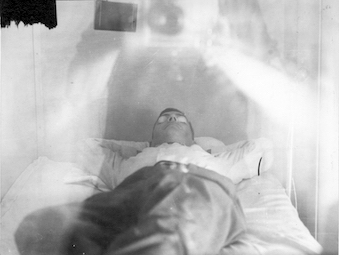My dissertation, “An Empire of Solitude: Isolation and the Cold War Sciences of Mind,” examines isolation as a Cold War matter of concern and an epistemic object between psychiatry, psychology, and neurophysiology between 1948 and 1975. Driven by an imaginary of sophisticated Soviet methods of indoctrination, scientists recast the solitary confinement of prisoners of war as a problem of “sensory deprivation,” hypothesizing that a monotonous sensory environment might render the mind malleable. Concurrently, soldiers stationed in remote geographies— from radar operators along the Arctic Distant Early Warning Line to astronauts in orbit— were figured as uniquely at risk not only from these hazardous terrains but from the psychological effects of isolation. Laboratory and field studies of isolation, sensory deprivation, and confinement were thus a locus for anxieties about the reliability of the Cold War subject. The body in experimental isolation became a scientific model of the prisoner of war, the astronaut, and, for some, the thinking subject itself.
This has led me to develop two related projects. The first, intended as a second book, is a history of the body underwater in the 20th century, examining the fashioning of the ocean as a military geography, not by oceanography as has been argued but by American submarine medicine and underwater physiology. Taking the scuba diver as an alternative to the figure of the cyborg, this has immersed me in the unexpectedly entangled histories of respiratory physiology, chronobiology, and anthropology in the South Pacific. The second is article length and explores mid-century scientific fascination with sleep and dreaming in extreme environments, particularly Antarctica.
This has led me to develop two related projects. The first, intended as a second book, is a history of the body underwater in the 20th century, examining the fashioning of the ocean as a military geography, not by oceanography as has been argued but by American submarine medicine and underwater physiology. Taking the scuba diver as an alternative to the figure of the cyborg, this has immersed me in the unexpectedly entangled histories of respiratory physiology, chronobiology, and anthropology in the South Pacific. The second is article length and explores mid-century scientific fascination with sleep and dreaming in extreme environments, particularly Antarctica.
 “Experimental Interference with Reality Contact,” 1959, NYU. Collection of Robert R. Holt.
“Experimental Interference with Reality Contact,” 1959, NYU. Collection of Robert R. Holt.
“Experiments in Loneliness,” May 1962, Mechanix Illustrated.